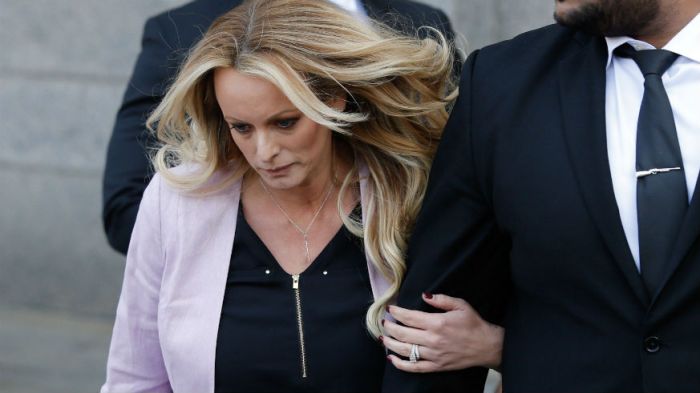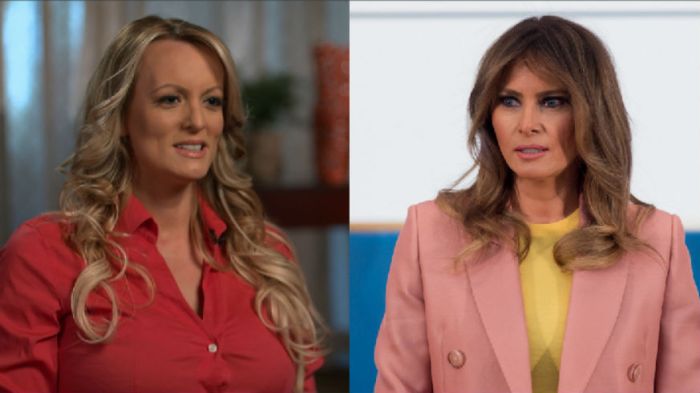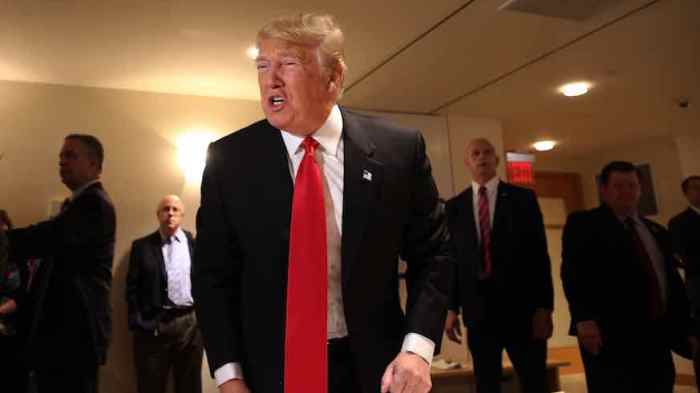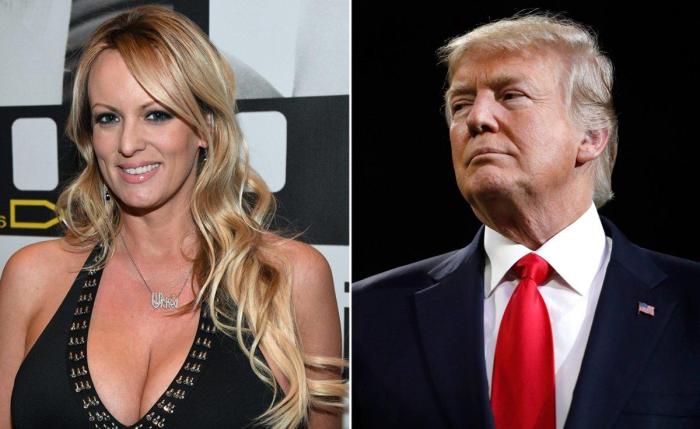This week, President Trump was successful in having Stormy Daniels‘ defamation lawsuit against him dismissed.
Daniels (real name Stephanie Clifford) claims she had an affair with Trump in 2006 and was paid hush money by Trump’s personal lawyer, Michael Cohen, during the 2016 campaign. Clifford claims that she was threatened by a stranger in 2011, when she was about to go public with the affair. In April, Clifford released a sketch of the man, and Trump replied by tweeting, “A sketch years later about a nonexistent man. A total con job, playing the Fake News Media for Fools (but they know it)!”
In the suit, Clifford alleged that by insinuating she lied about being menaced, Trump had defamed her.
A sketch years later about a nonexistent man. A total con job, playing the Fake News Media for Fools (but they know it)! https://t.co/9Is7mHBFda
— Donald J. Trump (@realDonaldTrump) April 18, 2018
U.S. District Judge S. James Otero dismissed the suit on Oct. 15, ruling that Trump hadn’t defamed her and ordering Clifford to pay his legal fees. In his opinion, Otero wrote that Trump’s tweet was hyperbole and that the First Amendment gave him the right to express it.
“The court agrees with Mr. Trump’s argument because the tweet in question constitutes ‘rhetorical hyperbole’ normally associated with politics and public discourse in the United States,” wrote Otero. “The First Amendment protects this type of rhetorical statement.”
Otero said he made his ruling according to the Texas Citizens Participation Act, a 2011 law that is designed to protect a defendant who faces a “strategic lawsuit against public participation” (SLAPP). According to Jacob Sullum of Reason.com, that kind of suit “is a Trump specialty. The president has a long, amazingly petty history of using the legal system against people who offend him.”
“In 1984, Trump sued Chicago Tribune architecture critic Paul Gapp for calling a Manhattan skyscraper proposed by Trump ‘aesthetically lousy’ and ‘one of the silliest things anyone could inflict on New York or any other city.’,” Sullum writes, noting that Trump “demanded $500 million in compensation for those insults, which seemed like a lot until he sought 10 times as much—$5 billion—in a 2006 lawsuit against Tim O’Brien, a financial journalist who had dared suggest that Trump was not worth as much as he claimed. Although Trump lost both of those cases, he later told The Washington Post he got what he wanted from his suit against O’Brien: ‘I did it to make his life miserable, which I’m happy about.'”
Trump has repeatedly attacked the First Amendment while in office, from suggesting that libel laws should be revised to punish negative media coverage (regardless of whether it is true) to calling the press “the enemy of the people.”



















